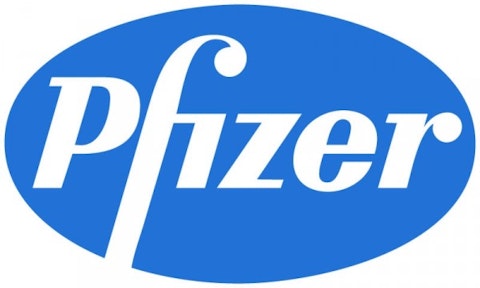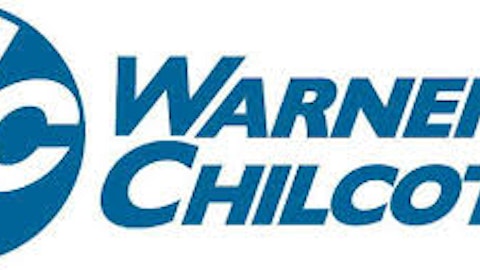A recession hampers almost every economic activity, but it does not reduce health problems. That’s why pharma products are always in demand.
Moreover, there is a rising demand for good healthcare in developing countries in the Asia-Pacific region. The increasing population of retirees in developed countries will further ensure that the pharmaceutical industry maintains its robust growth. Investing in the pharma sector makes sense, right?
However, a big problem for the major pharma players is fierce competition from cheap generics after the patent on a particular drug expires. If you look to invest in a generic drug maker, they operate in a highly competitive environment, with much lower margins, and aren’t protected by any rights like patents.
So, the best option is to invest in companies that have several drugs protected by patents, and a strong Research & Development (R&D) team that always has some breakthrough drugs in the pipeline. Using this criteria, I have identified three stocks that are poised to grow over the long term despite temporary setbacks.
Pfizer Inc. (NYSE:PFE) had a rough year in 2012 as patent rights on its blockbuster drug Lipitor expired in the U.S. and Europe, affecting its sales and earnings. Meanwhile, the company sold its nutrition division to Nestle and started focusing on its core business of prescription drugs.
Pfizer Inc. (NYSE:PFE) is developing some of the most crucial products in the world. Its breast cancer molecule palbociclib recently received “Breakthrough” status from the Food and Drug Administration. JPMorgan analysts estimate that, if it hits the markets, palbociclib alone can generate more than $5 billion in annual sales. The product received breakthrough status because of impressive results in mid-stage clinical trials.
As the company continues to lose patent on major drugs, Pfizer Inc. (NYSE:PFE) is aggressively considering strategic acquisitions. Recently, it acquired Nextwave Pharmaceuticals for $700 million. The acquisition gave it exclusive rights to a major ADHD drug Quillivant XR. Center of Disease Control and Prevention expects 10% of children between age 4-17 in the United States to be diagnosed with ADHD. This is likely to ensure huge demand for Quillivant XR.
Pfizer Inc. (NYSE:PFE) is also in discussions to acquire the Agila unit of Strides Arcolab for a whopping $2 billion. If successful, the deal will strengthen Pfizer’s position in the $10 billion injectables market.
Moreover, the company has been aggressively reducing its administrative expenses. Pfizer Inc. (NYSE:PFE)’s selling and administration expenses declined from $28.6 billion in 2010 to $23.8 billion in 2012.
Eli Lilly & Co. (NYSE:LLY) is currently in a big mess as patents on its major drugs have either expired or are about to expire. The antipsychotic drug Zyprexa lost its patent in 2011. As a result, sales of the drug have fallen more than 50% since then. Ely Lilly’s biggest blockbuster, Cymbalta, will lose its patent protection in the United States in December 2013. Cymbalta accounted for about 24% of the company’s net revenues in the first quarter this year. Humalog insulin’s patents expired last month and Evista, which is used for osteoporosis, will lose its patent in June 2014.
However, the company has increased its R&D expenditure from $4.88 billion in 2010 to $5.28 billion in 2012. It has more than 60 drugs in various testing stages, of which 12 have reached Phase 3 clinical trial or are under regulatory review. The three drugs that have demonstrated exceptionally positive results are Empagliflozin, Dulaglutide and Baricitinib Ra. While the first two are used for Type 2 diabetes, Baricitinib Ra has the potential to treat rheumatoid arthritis. As the life expectancy and obesity in the United States continue to increase, the market for these drugs will continue to increase.
Eli Lilly & Co. (NYSE:LLY) has a strong pipeline of new drugs for Alzheimer’s disease, diabetes, depression, lupus, tumors and rheumatoid arthritis. The company has also announced several cost cutting measures including reduction in its sales staff. Eli Lilly & Co. (NYSE:LLY) currently trades at a reasonable P/E, and has a good dividend history that make it a preferred choice of long-term investors.
Baxter International Inc. (NYSE:BAX) is undoubtedly one of the fastest growing pharmaceutical companies with a focus on renal, bioscience and medical delivery markets. The company’s strong focus on R&D will ensure that new drugs spur the growth and profitability in the long term. Baxter International Inc. (NYSE:BAX) spent $1.2 billion on R&D in 2012, up 20% from the previous fiscal year.
Baxter International Inc. (NYSE:BAX) remains committed to boost growth through organic as well as inorganic growth. In December 2012, the company announced to acquire Swedish firm Gambro AB in a $4 billion cash and debt deal to strengthen its Kidney Division. The deal has made Baxter the world’s second largest kidney dialysis products maker after Fresenius Medical Care AG of Germany.
The acquisition of Gambro made great inroads into European, Asian and Latin American markets for Baxter International Inc. (NYSE:BAX). The company expects Gambro to add at least $0.25 a share to its 2014 earnings.
The company’s dedication towards market penetration, growth, heavy R&D investment and a valuable product portfolio indicate that the company is set to outperform in the long run.
Bottom line
Most importantly, all the three companies are committed to delivering shareholder value. They have great dividend histories and they are currently trading at reasonable P/E ratios. I believe these three pharma stocks will continue to deliver great value.
Vikas Shukla has no position in any stocks mentioned. The Motley Fool has no position in any of the stocks mentioned.
The article Three Solid Long-Term Pharma Picks originally appeared on Fool.com and is written by Vikas Shukla.
Vikas is a member of The Motley Fool Blog Network — entries represent the personal opinion of the blogger and are not formally edited.
Copyright © 1995 – 2013 The Motley Fool, LLC. All rights reserved. The Motley Fool has a disclosure policy.





